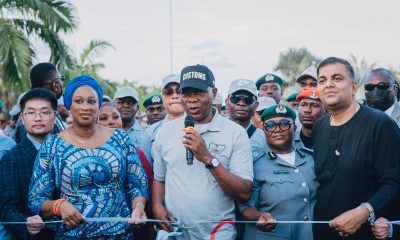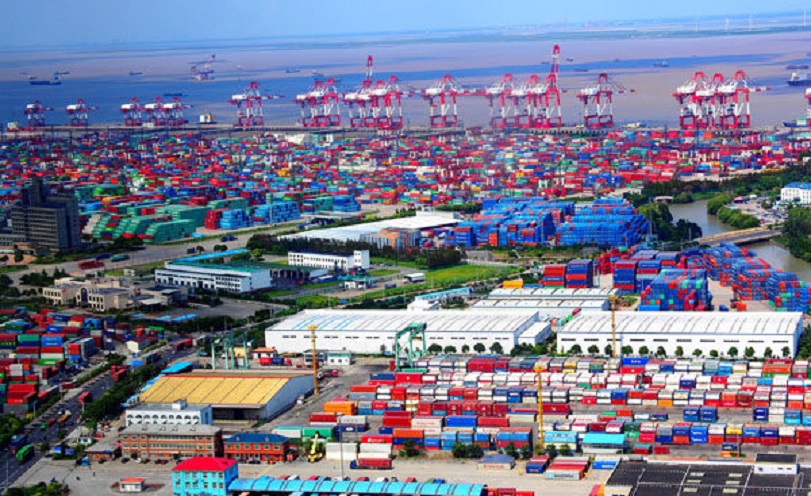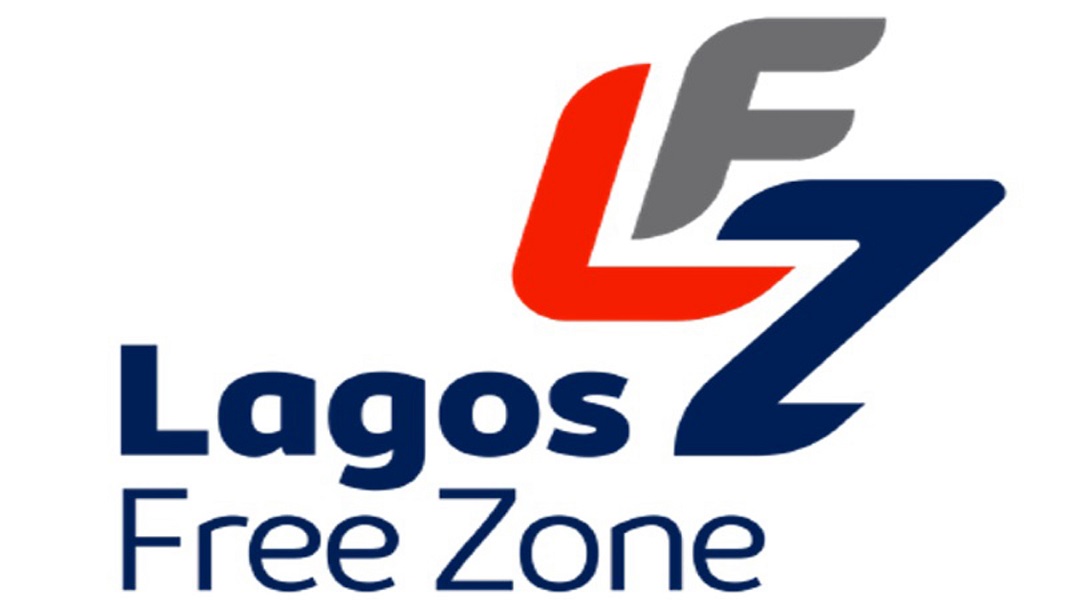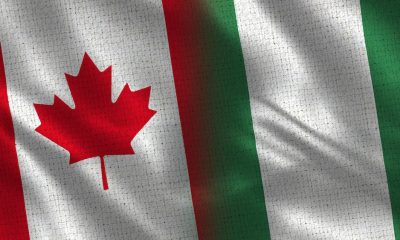General
Lekki Port, Others Launch Shipping Lines to Boost Trade
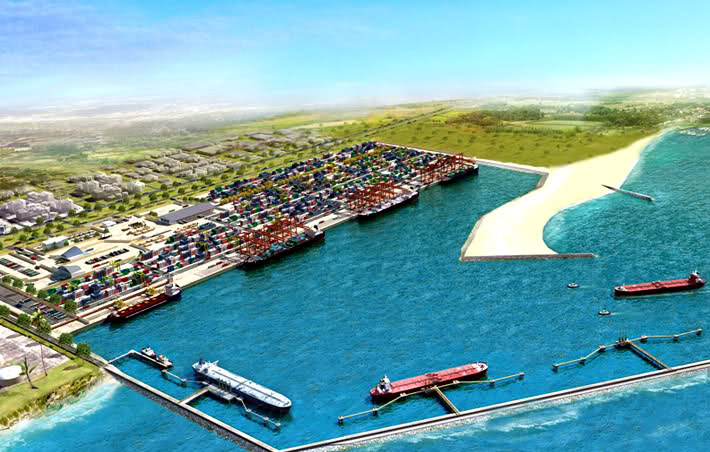
By Adedapo Adesanya
The Lekki Port LFTZ Enterprise Limited (LPLEL), Lekki Freeport Terminal, and the Lagos Free Zone have launched the COSCO, ONE (Ocean Network Express), and ZIM alliance services at Lekki Deep Sea Port as part of efforts to boost the Nigerian maritime sector and international trade.
The launch of the services was signalled by the arrival of the E A Centaurus at Lekki Deep Sea Port on Friday, November 8, 2024. The E A Centaurus, with an overall length of 277m and a container handling capacity of 7,000 TEU, is also the largest COSCO vessel to call Nigeria. It docked at the port at about 10:30 a.m.
Speaking at the launch, Mr Christophe Cassang, the Chief Executive Officer (CEO) of Lekki Freeport Terminal, explained that the service’s launch marks a crucial milestone in the terminal’s development and capacity expansion.
He added that the launch of the service demonstrates the company’s commitment to becoming a leading maritime hub in West Africa.
“Through the strategic partnership with global shipping leaders such as COSCO, ONE, and ZIM, we are strengthening our position on the international stage and opening new opportunities for trade and industry in Nigeria and the region.
“Lekki Freeport Terminal is run by a well-trained workforce, passionate about meeting challenges of the future, and is equipped with the most advanced technology and state-of-the-art infrastructure designed to meet the growing needs of the shipping lines and of our customers,” said Mr Cassang.
In his remarks during the ceremony, the Managing Director of Lekki Port, Mr Du Ruogang, described the launch of the new shipping line services as a true testament to the company’s commitment to Nigeria’s maritime future. Ruogang noted that the berthing of the E A Centaurus marked the first of bi-weekly calls to Lekki Deep Sea Port by COSCO, ONE, and ZIM shipping lines.
He described the launch of the COSCO, ONE, and ZIM shipping lines as a symbol of the company’s unwavering dedication to positioning Lekki Port as a transformative force in the Nigerian maritime Industry.
“After 18 months of commencement of commercial operations and continued efforts, we are proud to welcome COSCO, ONE, and ZIM shipping lines to Lekki Port. With the bi-weekly calls of the consortium, we are realizing our vision of driving significant cargo volumes and further positioning Lekki Port to enhance the Nigerian maritime sector and improve business efficiency across the country. The achievement is not the end but rather the beginning,” he said.
In her statement, the Chief Executive Officer of Lagos Free Zone, Mrs Adesuwa Ladoja, described the launch of COSCO, ONE, and ZIM shipping lines services at Lekki Port as a momentous occasion and a significant achievement not only for Lekki Port and Lekki Freeport Terminal but also for Lagos Free Zone as it is bound to attract more foreign direct investment (FDI) to the zone.
“From one shipping line, we now have four shipping lines calling at the Lekki Deep Sea Port; it is significant because we now have more options that allow more customers access to the state-of-the-art facilities at the Lekki Port.
“It also allows the growth of enterprises in the Lagos Free Zone and, in fact, the entire Lekki economic axis. The companies can bring their raw materials through any of the four shipping lines and move them straight into the factories for production. They can also export finished goods to other parts of Africa and, indeed, the world. This is the economic rejuvenation we are all looking for, and Lekki Port and Lagos Free Zone are happy to be doing our part”, she said.
In their reaction, the COSCO, ONE, and ZIM shipping line representatives expressed their excitement about partnering with Lekki Port and Lekki Freeport Terminal. They expressed satisfaction with the world-class infrastructure and facilities available at the port. The companies were represented by the Deputy Managing Director of COSCO Shipping Lines Nigeria Limited, Mr Rex Wang, Director, Ocean Network Express (Nigeria) Limited, Mr Stefan Pedersen, and Managing Director, Lansal, Mr Todd Rives.
General
Nigeria’s Democracy Suffocating Under Tinubu—Atiku

By Modupe Gbadeyanka
Former Vice President, Mr Atiku Abubakar, has lambasted the administration of President Bola Tinubu for the turnout at the FCT Area Council elections held last Saturday.
In a statement signed by his Media Office, the Adamawa-born politician claimed that the health of Nigeria’s democracy under the current administration was under threat.
According to him, “When citizens lose faith that their votes matter, democracy begins to die. What we are witnessing is not mere voter apathy. It is a direct consequence of an administration that governs with a chokehold on pluralism. Democracy in Nigeria is being suffocated slowly, steadily, and dangerously.”
He warned that the steady erosion of participatory governance, if left unchecked, could inflict irreversible damage on the democratic fabric painstakingly built over decades.
“A democracy without vibrant opposition, without free political competition, and without public confidence is democracy in name only. If this chokehold is not released, history will record this era as the period when our hard-won freedoms were traded for fear and conformity,” he stressed.
Mr Atiku said the turnout for the poll was below 20 per cent, with the Abuja Municipal Area Council (AMAC) recording 7.8 per cent.
He noted that such civic participation in the nation’s capital, the symbolic heartbeat of the federation, is not accidental, as it is the predictable outcome of a political environment poisoned by intolerance, intimidation, and the systematic weakening of opposition voices.
The presidential candidate of the People’s Democratic Party (PDP) in the 2023 general elections stated that the ruling All Progressives Congress (APC) under Mr Tinubu has pursued a deliberate policy of shrinking democratic space, harassing dissenters, coercing defectors, and fostering a climate where alternative political viewpoints are treated as threats rather than contributions to national development.
He called on opposition parties and democratic forces across the country to urgently close ranks and forge a united front, declaring, “This is no longer about party lines; it is about preserving the Republic. The time to stand together to rescue and rebuild Nigeria is now.”
General
Nigeria Eyes Full Entry into Council of Palm Oil Producing Countries

By Adedapo Adesanya
Nigeria is set to validate a technical committee report geared towards transitioning the country from observer status to full membership of the Council of Palm Oil Producing Countries (CPOPC) in April.
Mr Abubakar Kyari, Minister of Agriculture and Food Security, said this when the council’s mission visited him over the weekend in Abuja, noting that the ministry had constituted a technical committee to consider how the country would seamlessly transit from observer country to membership in CPOPC based on its strategic importance in palm oil production.
“We are conscious of the fact that the palm oil value chain is very strategic for us and identified it as an export crop that can drive foreign exchange for the country and ensure good health in terms of consumption.
“We are conscious of the fact that we need the support of CPOPC countries to provide the country with a new variety of seeds that are climate-smart and resistant so that they can be produced by farmers in the country,” he said.
Mr Alphonsus Inyang, President, National Palm Produce Association of Nigeria (NPPAN), said being a member of CPOPC Nigeria would target over 10 million tonnes of oil palm between 2026 and 2050.
“We are also targeting 2.5 million hectares from among Nigeria households who are out to produce one hectare each, geared towards a N20 trillion annual economy within this period from among Nigeria households.
“We are working side by side with the big players who will be developing plantations,” he said.
The Secretary-General of CPOPC, Ms Izzana Salleh, said the council’s mission to Nigeria was to see how the country could transit from observer status to full membership, among others
She said that the status of the country as an observer nation since 2024 would expire by November.
Ms Salleh assured the country of the council’s readiness to support its vision to strengthen domestic production, enhance food security and build a competitive and sustainable palm oil supply chain.
The official emphasised that being a member of the council would strategically position Nigeria for a greater future regarding oil palm production.
According to her, the visit is to strengthen the council’s engagement with Nigeria, including potential membership in CPOPC.
She said: “The council’s mission to Nigeria aims to advance both Nigeria’s national ambitions and Africa’s collective voice in global agricultural discussions.
“CPOPC was established to promote cooperation among producing nations, empower smallholders, advance sustainability, and ensure fair, science-based global dialogue on vegetable oils.
She emphasised that being a member of the council would strategically position the country for greater future prospects regarding oil palm production and the value chain, as well as export.
“We are ready to support Nigeria’s vision to strengthen domestic production, enhance food security, and build a competitive and sustainable palm oil supply chain,” she said.
General
Violence Mars APC Ward Congress in Oluyole
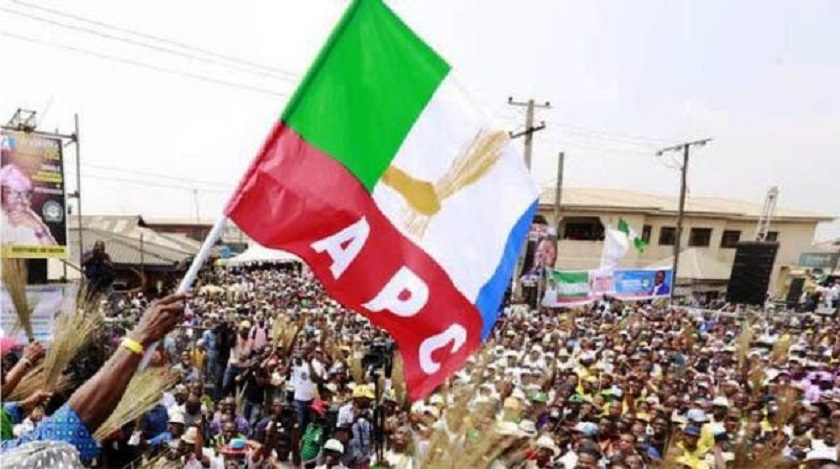
By Modupe Gbadeyanka
The ward congress of the All Progressives Congress (APC) in Oluyole Local Government Area of Oyo State on Saturday left several party members injured after a violence clash erupted.
According to reports, one of the injured persons was Mr Idowu Oyawale, who served as the campaign Director General of a House of Representatives member in the last general elections, Ms Tolulope Akande-Sadipe.
It was disclosed that he sustained severe injuries during the exercise and is currently receiving treatment at an undisclosed hospital.
The ward congress was organised by the ruling party to elect ward executives across the local government’s wards.
However, it was disrupted at Olomi Ward 7 by suspected heavily-armed political thugs allegedly linked to a member of the party.
It was claimed that the thugs invaded the congress venue at Olomi Basic School 1, dispersing party members and officials supervising the exercise, with stones, clubs and other weapons.
Eyewitnesses said tensions escalated unprovoked over delegates’ lists and ward executive positions. The disagreement reportedly degenerated into physical altercations before the violent attacks on some party members.
It was learnt that security operatives led a tactical team to restore order, peace, and disperse the attackers.
Reacting to the incident, some party leaders and elders condemned the violence, describing it as unfortunate and capable of undermining the credibility of the internal democratic process.
The leaders have called on party chieftains and President Bola Tinubu to immediately order an investigation into the violent attacks.
-

 Feature/OPED6 years ago
Feature/OPED6 years agoDavos was Different this year
-
Travel/Tourism10 years ago
Lagos Seals Western Lodge Hotel In Ikorodu
-

 Showbiz3 years ago
Showbiz3 years agoEstranged Lover Releases Videos of Empress Njamah Bathing
-

 Banking8 years ago
Banking8 years agoSort Codes of GTBank Branches in Nigeria
-

 Economy3 years ago
Economy3 years agoSubsidy Removal: CNG at N130 Per Litre Cheaper Than Petrol—IPMAN
-

 Banking3 years ago
Banking3 years agoSort Codes of UBA Branches in Nigeria
-

 Banking3 years ago
Banking3 years agoFirst Bank Announces Planned Downtime
-

 Sports3 years ago
Sports3 years agoHighest Paid Nigerian Footballer – How Much Do Nigerian Footballers Earn


